
by Judith Nelson | Apr 18, 2016 | 2016, Europe, Scotland, World Motherhood

Edinburgh Castle
Scotland is the northernmost country in the U.K. and its peoples, who have included Picts, Gaels and Scots, have a rich and colourful history. Many people have heard of Macbeth, King of Scots (the Eleventh Century monarch who was immortalised by Shakespeare), and Mary, Queen of Scots (famous for having been executed in 1587 by her cousin Elizabeth who was Queen of England at the time). Hadrian’s Wall, which stretches for 73 miles right across the north of England from East to West gives an sense of what Scotland was like during the Roman invasions. It was built by the Roman Emperor Hadrian between 122 and 128 AD to “separate Romans from barbarians” as the Caledonians (collective name for the southern Scottish tribal clans) were impossible to subdue.
Thankfully, today’s Scotland is much more hospitable place and has a well-earned reputation as a beautiful country full of mountains, glens (valleys) and lochs (Scottish name for lakes) although much of its green beauty comes from a fair amount of rain!
Scotland is known around the World as ‘the home of golf’ and there are over 550 courses throughout the country, the most famous being the 16th century Old Course at St Andrews.
Scotland’s population is small at only around 5.3 million and approximately 3.5 million people live in the ‘Central Belt’ which is an area running from East to West between Edinburgh, Scotland’s capital, and Glasgow, the country’s largest city, which hosted the Commonwealth Games in 2014. The Central Belt covers only an eighth of the total land mass of the country so there are many parts of Scotland which remain very unpopulated and remote. The North of the country has the wildest, harshest and most remote environments within the British Isles and there are many areas which are completely uninhabited, although it was not always the case. Many parts of the Scottish Highlands were once well populated and over half Scotland’s population lived in the Highlands prior to 1750, but people were driven out to make way for sheep farming during the notorious Highland Clearances in the late 18th Century.
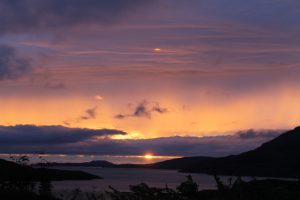
Wester Ross
Nowadays it is possible to walk for days through places such as the Cairngorm mountain range without seeing any civilisation and, further north, Letterewe is one of the largest areas in Western Europe with absolutely no civilisation, not even a road, nor any mobile phone connection! Some areas are now so remote and unvisited that crossing them in winter would be as risky as crossing the Canadian Arctic or Siberian wastes.
(See – Search and go: Getting lost in the Scottish wilderness- http://www.searchandgo.com/articles/recreation/scottish-wilderness-1.php)
The Scotland of today is certainly a very interesting place to live and raise children, especially in terms of the political scene. For instance, the three main parties in Scotland are led by women and it is the only place in the world where the majority of party leaders (four out of the six parties) identify as LGBT (lesbian, gay, bisexual, and transgender). That said, only 46 out 129 members of the Scottish Parliament are women, many of whom have no children.
In fact, none of the female party leaders have children and I think this shows that our society and the parliamentary system need to change a lot before women enjoy the same opportunities as men – i.e. the ability to juggle family and work life without compromising their status at work.
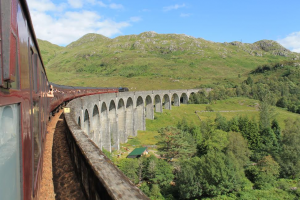
Glenfinnan Viaduct
In terms of the political scene, Scotland has had its own devolved parliament since 1999 and the Scottish Parliament looks after many devolved matters such as health, education, justice and policing. Few people outside the country realise that Scotland has had its own legal and education system for centuries. The Scottish legal system is based on Roman Law (rather ironic when you consider that Scotland was a place they couldn’t invade!) and is quite different from the legal system in England which is based on ‘precedent’.
This gives many Scots a very strong sense of identity and of belonging to a Scottish nation, rather than identifying themselves as British, a point which other nations, both in the UK and elsewhere, often find difficult to understand!
The First Minister of Scotland, Nicola Sturgeon, heads the SNP (Scottish National Party). The SNP was founded as a party for an independent Scotland and it has been increasing in popularity, having convincingly won several elections over the past decade. Nicola is the first female leader and she has been popular with many of the electorate, especially young women who view her as a good role model.
The subject of Scottish independence has continued to dominate the UK headlines over the past couple of years despite an independence referendum in September 2014 where 55% of the population voted to stay in the UK. However, people in the UK will soon be asked to vote on whether the UK should remain in the European Union (E.U.) and this has once again raised the question of independence for Scotland. If the vote turns out to be in favour of the UK leaving Europe, the result is likely to prompt another independence referendum in Scotland because the majority of Scots wish to stay part of Europe and many feel that it is undemocratic if Scotland is forced to leave due its being part of the UK. Some people in Scotland who previously voted against independence feel so strongly that we should remain in Europe that they would now be prepared to vote for independence if the UK as a whole votes to leave the E.U. This means there could be a much higher likelihood of an independent Scotland and many people are impatiently awaiting the results of the referendum which takes place on the 23rd of June.
It looks families in Scotland will face an interesting few months!
What are some interesting facts about the country you live in?
This is an original post to World Moms Blog by Judith Nelson of Scotland.

by Loren Braunohler | Apr 11, 2016 | 2016, Europe, Expat Life, Life Balance, Parenting, Poland, SAHM, School, Stay-At-Home Parent, World Motherhood, Younger Children
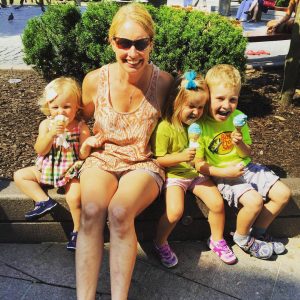
Indulging in ice cream on a hot day in Krakow’s main market square
Free time. Sometimes I feel like I would give an arm and a leg for a little bit of free time. To have lunch with friends. To go to the gym. To take a nap. To read. To go to the grocery store all by myself. To do nothing.at.all. I knew when I signed up to be a stay-at-home parent that I would have little time to myself. I also knew that with my husband’s job, which has us moving to a different country every two or three years, that having a set of grandparents (or two) close by to provide some regular child-free relief was not going to happen. In our journey across the globe, we’ve been fortunate enough to find our place and develop our circles of friends. The expat communities in Thailand and Poland have been good to us, and we know that if we have an emergency, we can call on the support of our friends to help us out with the kids if need be. That is the way it works when you are abroad. You help each other out. And I am so grateful for these friends and their support.
But, still, when you are a stay-at-home parent, particularly not near close friends and family, you spend an extraordinary amount of time with your kids. This is of course exhausting, but also wonderful. You get to witness every little new thing they discover, the days their mood begins to change and they develop new facets of their personality, and watch the bond between siblings grow (yes, a time does come when they stop fighting constantly). Your life is so wrapped up in theirs that it is hard to imagine a time when it will no longer be that way. Their every little move is known to you, and yours to them.
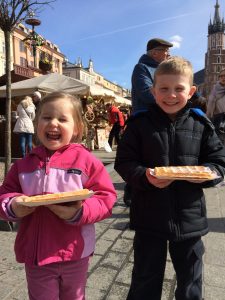
Enjoying waffles while visiting the Easter markets in Krakow
But, one day they will go off to school – all of them (in my case, three) – and then, you will actually have free time. Think about that for a minute. You, without needing to feel guilty, will be able to do what you want to do – whether that is going back to work part-time or full-time, or taking on a new hobby or two, or just enjoying the peace and quiet for awhile. This is your time. So what will you do?
I am not going to lie. I have about 18 things on my plate that I would like to do when the kids start school. I’d like to start writing more often and for more publications, I would like to write another children’s book (and hope that it will be successfully published this time). I would like to train for and run a marathon. I would like to learn to swim and bike correctly and try my hand at a triathlon. I would like to become a good photographer. I would like to get back to writing thank you notes, planning ahead of time, and reading. I would like to cook and not be rushed. I would like to explore the city – take tours, visit the non-kid friendly museums, mosey about Krakow’s beautiful old market square.
So yea, it’s safe to say I’ve thought about what I will do when the kids go to school. But sometimes I wonder if the thrill of free time will peter out quickly. The reason I stopped working five years ago was to stay at home with the kids.
Will I be able to feel that my life is fulfilling when they are no longer at home, nor fully dependent on me? Will what I plan to do with my time be “enough?” Will it fill the void of not having them around? Will my time be useful? And if so, to whom will it be useful?
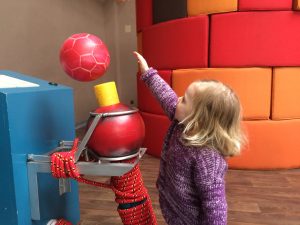
Enjoying a morning of fun at the Engineering Museum in Krakow
I have talked to other mothers who have the same concern. One friend in particular who just went through the process of sending her boys off to school for the first time (she home-schooled them previously) has struggled with feeling whether what she is doing in her free time “enough?” When your role – for years – is to raise sweet little beings into strong, confident, and loving children, and then one day the time you have to do that is cut back significantly – what will that feel like? Will it be a blow? Will it be a relief? Will it be bittersweet?
At a minimum, it will be an adjustment. And while I don’t have any answers, yet, it is just one more milestone on this path of parenthood.
Are you a stay-at-home parent? How have you adjusted, or how will you adjust, to your kids going to school?
p>This is an original post to World Moms Blog by Loren Braunohler of Poland.

by Michelle Pannell | Apr 4, 2016 | 2016, Economy, Environment, Europe, Global Goals, UK, World Motherhood
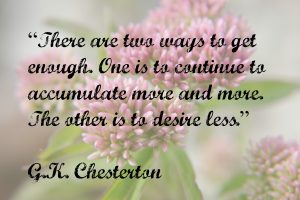 It’s now April and without really meaning to, I’ve found that in the first three months of the year I’ve not bought myself any clothes or shoes. Now this might seem like a small thing to many people, but sadly where I live in the UK it is very common place to constantly be buying new things – clothes, jewellery, items for the house, cars, gadgets and frankly any sort of status symbol.
It’s now April and without really meaning to, I’ve found that in the first three months of the year I’ve not bought myself any clothes or shoes. Now this might seem like a small thing to many people, but sadly where I live in the UK it is very common place to constantly be buying new things – clothes, jewellery, items for the house, cars, gadgets and frankly any sort of status symbol.
Over the last decade I’ve become more and more concerned about the disposable world we live in, the one where we teach our children that as soon as a sock has a hole in it, you throw it away and buy new ones. Of course some of the problem is that in places like England socks can be bought very cheaply now, perhaps five pairs for just £2.00. But at what expense are we buying those socks? How much did the worker in a far off country earn whilst making those socks? A good living wage? Almost certainly not.
Every action we take when it comes to buying ‘things’ or accumulating ‘stuff’ has an impact, not only on those people who are actually involved in the production phase but also on the cost of delivering the stuff from one country to another and delivering it to the end customer. Almost everything we buy has a carbon footprint. I can’t even start to pretend that I am any kind of expert in this area, but I am slowly realising that it is not enough to just be an advocate for an end to extreme poverty. If I want to see that happen I have to also be an advocate for an end to the use of fossil fuels.
A few months ago, Amnesty International and Greenpeace issued a joint statement to the 195 countries meeting together to discuss climate change at the COP21 Sustainable Innovation Forum in Paris. The statement linked global temperature rises with human rights. They stated that an additional 600 million people could face hunger by 2080 due to climate change. What a terrifying thought and completely in opposition to where the situation should be heading.
Thankfully a few days later, the world’s governments signed an agreement to reduce net carbon emissions to 0% by 2050, thus signalling an end to the fossil fuel age. Of course change is not as easy as some officials signing a treaty: there is much hard work to be done and Joe Average, like you and I, has to play a part. So I beg you, starting now, will you please consider if you really need that new blender? Do you have to trade in your BBQ for the self-cleaning one that is just one step up? Or could your old one last you a few more years?
I’m certainly adopting the attitude of ‘take me as I am’ this year and if someone comes round my house and feels that my TV is old fashioned and perhaps a little squeaky, well so be it. We won’t be buying a new one until this one really is past its best and can’t be fixed. It’s far too easy to get caught up in the competitive rat race, the one that says you must have a big smart car, holidays abroad and a well thought-out wardrobe, to be seen as successful.
In contrast, some of the most successful people I have known over the years have been those with no great dress sense, who have had a messy house and a clapped-out old banger of a car. Success is about the person, not their belongings. It is the mother whose four adult children are all thriving and giving back to society in various ways. It is the retired man who goes out and works with street kids to ensure that they stay away from drugs. It is the passer-by in the street who smiles at everyone and takes time to talk to those she knows are lonely.
Those are the people I want to celebrate and to join. I don’t need lots of new things, I just need a heart full of love and by the grace of God I can share that with everyone I meet. Will you join me?
What role do material things play in your life? Are you concerned for the world your children are growing up in?
This is an original post written by blogger Michelle Pannell for World Moms Blog. Photo credit to the author.

Michelle’s tales of everyday life and imperfect parenting of a 13-year-old boy and 9-year-old twin girls and her positive Christian outlook on life have made her name known in the UK parenting blogosphere. Her blog, Mummy from the Heart, has struck a chord with and is read by thousands of women across the world.
Michelle loves life and enjoys keeping it simple. Time with her family, friends and God are what make her happiest, along with a spot of blogging and tweeting, too! Michelle readily left behind the corporate arena but draws on her 25 years of career experience from the fields of hotel, recruitment and HR management in her current voluntary roles at a school, Christian conference centre, night shelter and food bank.
As a ONE ambassador, in 2012 Michelle was selected to travel on a delegation to Ethiopia with the organisation to report on global poverty and health. Then in 2014 she was invited to Washington, DC, where she attended the AYA Summit for girls and women worldwide. When asked about her ambassadorship with the ONE Campaign, she stated, "I feel humbled to be able to act as an advocate and campaigner for those living in poverty."
More Posts - Website
Follow Me:






by Mirjam | Mar 28, 2016 | 2016, Belgium, Europe, Netherlands, Terrorism
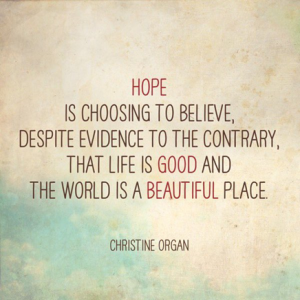 I write this in response to the recent terrorist attacks in Belgium on March 22th.
I write this in response to the recent terrorist attacks in Belgium on March 22th.
When I came home from work on Tuesday, I turned on the news and watched chaos and destruction. I am not particularly partial to watching the news, but this hit really close to home. I watched in shock and horror, not completely able to grasp exactly what I was watching.
Privileged as I have been most of my life, this kind of violence and terrorism are things that I watch on television or read about in the newspapers.
As my kids walked in, I felt a strong need to give them some sort of explanation or assurance that they were safe. I couldn’t. I was at a loss for words at that moment.
“Terrorists fight a war against unarmed women, children and elders,” I said. “They fight innocent people instead of playing by the rules and fighting against soldiers. That is what’s so wrong about terrorism. These victims had nothing to do with any war whatsoever. There were just living their lives.”
The news reporter switched to his colleagues in Beirut.
“What are the responses there?” he asked.
“People are shocked and appalled,” the reporter answered. “Although there are some who are happy that ISIS has been able to strike one of their enemies.”
I for one couldn’t understand why that was being reported hours after the attack. I can only imagine what it would feel like to lose a loved one to terrorism and to hear that people are cheering about it.
It was another hate seed being planted.
But sometimes my heart is flooded with fear and my mind worries about the future. It is not the terrorist attacks that scare me the most. What scares me the most is the growing intolerance against Muslims, refugees, and foreigners in Europe.
I see that hatred is growing, and bitter seeds of hate are being planted, watered, and rooted. My response is to double my efforts in teaching my children compassion, kindness and tolerance toward others. I realize that my reactions, my responses to these violent acts, will teach them how to respond to hate. So I refuse to be overwhelmed by fear or hatred. I grab onto hope and hold it tight.
On Friday, it was reported that in Brussels, people were writing messages of love and solidarity on the streets. The simple gesture of people writing with colored chalk warmed my heart.
Because if we are able turn to love instead of hatred, the terrorists haven’t won.
My heart goes out to the people affected by this tragedy.
“Hope is being able to see that there is light in spite of all the darkness.”
– Desmond Tutu –
How do you hold onto hope in the wake of terrorism? How do you talk to your children about it?
This is an original post to World Moms Blog by Mirjam of the Netherlands. Picture credit: Christine Organ.
Mirjam was born in warm, sunny Surinam, but raised in the cold, rainy Netherlands.
She´s the mom of three rambunctious beauties and has been married for over two decades to the love of her life.
Every day she´s challenged by combining the best and worst of two cultures at home.
She used to be an elementary school teacher but is now a stay at home Mom. In her free time she loves to pick up her photo camera.
Mirjam has had a life long battle with depression and is not afraid to talk about it.
She enjoys being a blogger, an amateur photographer, and loves being creative in many ways.
But most of all she loves live and laughter, even though sometimes she is the joke herself.
You can find Mirjam (sporadically) at her blog Apples and Roses where she blogs about her battle with depression and finding beauty in the simplest of things. You can also find Mirjam on Twitter and Instagram.
More Posts - Website
Follow Me:


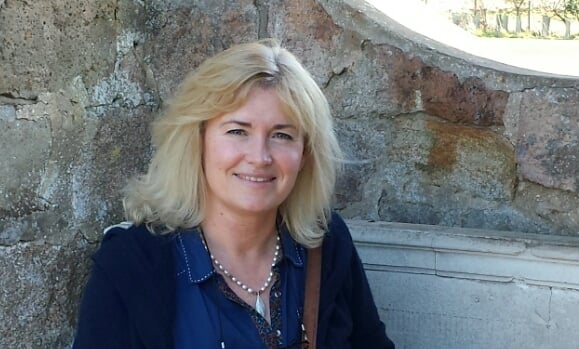
by Judith Nelson | Mar 21, 2016 | 2016, Europe, Interviews, Scotland, World Interviews, World Motherhood
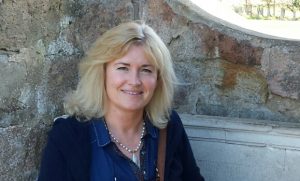 Where in the world do you live? And, are you from there?
Where in the world do you live? And, are you from there?
I live in Scotland in North Berwick, a seaside town near Edinburgh which is Scotland’s capital city. I’m not from the area but it’s home. I was born in England but lived in various places as a child, including Canada and Switzerland. I moved to Scotland when I was 12 as my mother is part Scottish.
What language(s) do you speak?
English and French
When did you first become a mother (year/age)?
1994, aged 31
Are you a stay-at-home mom or do you work?
Both! I work from home but I try to fit work around my family (the work is voluntary and I am the vice president of two charities teaching Heartfulness meditation and relaxation which is free and open to all).
Why do you blog/write?
I feel that it’s a great way to share ideas and inspiration. We are social beings and writing is one of the greatest ways to communicate with each other. I particularly like the fact that it has the potential to unite us, although the converse is also possible! It can help us to understand that, no matter where we live, all human beings have much more in common than we realise.
What makes you unique as a mother?
I suppose I’m unique as a mother to my own children, which makes all mothers unique.
It’s a difficult question! Perhaps it’s the fact that I have strived to make sure that I see my children (and other children) as unique individuals who are here to experience their own path through life. I try hard not to project any of my beliefs, wishes and aspirations onto my children so they can be completely free to be themselves.
What do you view as the challenges of raising a child in today’s world?
Finding a good balance between protecting your child and helping them to stand on their own two feet is a challenge. There is often a continuous stream of bad news in our press as well as much uncertainty and change in the World which can cause fear, especially in children and teenagers.
We need to help our children to be confident, resilient, and to value themselves and their place in the World so they can feel hopeful about their future. It’s also a challenge to help them accept themselves as they are, given the pressures to conform since society usually defines us by how we look and what we do, rather than who we are.
I work in schools teaching relaxation/meditation and it is clear that mental health problems are increasing dramatically in young people and teenagers due to stress, and fear and uncertainty about their future. It can be very difficult for parents to spot the signs and to help their children, especially if they themselves are under a lot of stress.
How did you find World Moms Blog?
I was introduced to WMB by Purnima Ramakrishnan
These interview answers were provided by Judith Nelson for World Moms Blog. Photo credit: Judith Nelson.
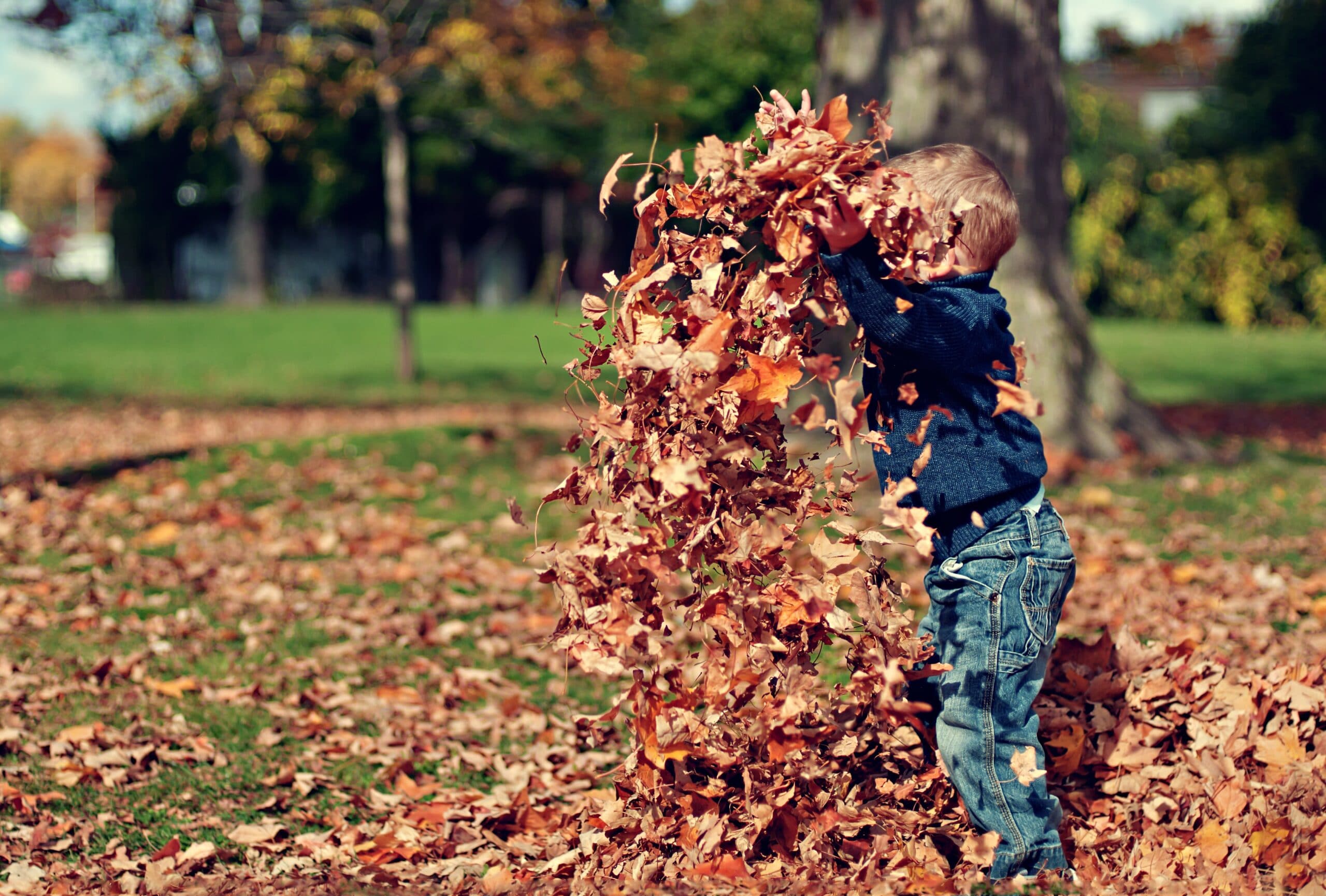
by juliegd | Mar 14, 2016 | 2016, Babies, Brazil, Cultural Differences, Culture, Europe, Parenting
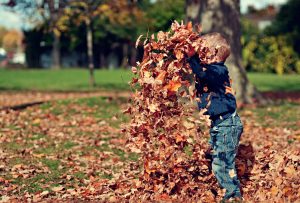 I realize that in my last post I might have sounded just slightly negative about Portugal and the Portuguese. Let me just state clearly, so there is no doubt, that I absolutely truly love living in this wonderful country. And it’s not just about the food, the sun, the wine or the beautiful beaches. Portugal is one of the most child-friendly countries I know.
I realize that in my last post I might have sounded just slightly negative about Portugal and the Portuguese. Let me just state clearly, so there is no doubt, that I absolutely truly love living in this wonderful country. And it’s not just about the food, the sun, the wine or the beautiful beaches. Portugal is one of the most child-friendly countries I know.
It is difficult for me to make a fair comparison to my home countries, since I have spent so long in Latin places (Portugal and Brazil) that my personality and culture has strayed very far from its Anglo-German origins. Just ask any English person who backs away when I enthusiastically greet them with a kiss! I’ve never tried to nurse a baby in England, never attempted to enter German restaurant with a pushchair. But it doesn’t get much better than what I’ve experienced in Brazil and Portugal.
Let’s start with pregnancy. In Brazil, you are automatically elevated to the position of demi-goddess. People in the street will exclaim how lucky and beautiful you are, no matter the size of your girth or breadth of your waddle. Little old ladies in cafés will stand in line to touch your baby belly, coo to the baby or pronounce a quick blessing. Granted, this can sometimes be a bit too much for someone who has clearly defined boundaries around their personal space (who, me?) but all-in-all being pregnant Brazil is like being wrapped in a comfy, welcoming social blanket (until you try and give birth…).
Then the baby comes.
If Mom is a demi-goddess, baby is Zeus and Hera wrapped into one. In Brazil, babies rule supreme.
Gone are the days when you could have a quiet dinner at a restaurant. Your baby may be fast asleep but every single passerby will want to lift the blanket to take a look. Random strangers will come up and offer to hold your baby, just because she’s so adorable. I’ll admit I found this difficult to adjust to: if I was uncomfortable having strangers touch my pregnant belly, I definitely did not want them carrying my newborn son around the shopping mall. But although new mothers have to learn to say “No” to little old ladies and be prepared to whip their babies out of the arms of strangers, the beauty of this attitude is that you and your baby are always welcome.
You can go to the beach, have coffee in your favorite coffee shop and even eat your favorite fancy restaurant. No waiter is too snotty to help you carry the push-chair over tables, smile at your squawking toddler and pick up his napkin the umpteenth time he drops it.
Portugal is pretty much my dream country in every single way, so I was delighted to find that this baby-friendly attitude extends across the Atlantic from Brazil.
Since moving here I have breastfed my baby in the local pastelaria, at a fancy Christmas dinner and walking along the beach. I now breastfeed a rambunctious toddler who enjoys pulling the goods out for all to see (if you know what I mean) and still, no comment, no looks, no disapproval.
If you’re out and about on your own with baby, everyone is willing to lend a hand. Just the other day two tiny old ladies offered to hold my bike while I attempted the impossible task of holding my son while switching to the other side of the handlebars. A friend of mine recently flew from France to Brazil. On the way there the Brazilian couple next to her entertained both of her kids throughout the flight. On the way back, a French couple tetchily complained when her toddler accidentally knocked against their iPad.
Like I said, I don’t really know what things are like back in England or Germany. I’ve heard positive stories of playgrounds galore, soft play centers that open on Sunday nights, and cafés with special baby corners. But I’ve also heard friends talk about feeling uncomfortable when out of the house, and of restaurants that are specifically “adult-only”. The Brazilian-Portuguese attitude that “everyone’s child is my child” of course has its downsides: I was recently berated by a couple on the beach for allowing my son to walk barefoot.
But for the moment, I’m just going to count my blessings. My attitude to parenting is that my baby just comes with me wherever I go – how lucky am I to live in a country that gives me the freedom to do exactly that.
How child-friendly is the country you live in? How do you feel about child-free restaurants?
This is an original post to World Moms Blog by Julie of Portugal. Photo credit to the author.
Julie, her husband and baby boy are currently living in Portugal, having spent the previous three years in the southeast of Brazil.
She considers herself a bit of an obsessive reader, and even more so since discovering she was pregnant. All that information has to go somewhere, which is why Julie started her blog, happy mama = happy baby, where she documents all the quirky parenting ideas she has collected so far.
More Posts - Website
Follow Me:

















 It’s now April and without really meaning to, I’ve found that in the first three months of the year I’ve not bought myself any clothes or shoes. Now this might seem like a small thing to many people, but sadly where I live in the UK it is very common place to constantly be buying new things – clothes, jewellery, items for the house, cars, gadgets and frankly any sort of status symbol.
It’s now April and without really meaning to, I’ve found that in the first three months of the year I’ve not bought myself any clothes or shoes. Now this might seem like a small thing to many people, but sadly where I live in the UK it is very common place to constantly be buying new things – clothes, jewellery, items for the house, cars, gadgets and frankly any sort of status symbol.

 I write this in response to the recent terrorist attacks in Belgium on March 22th.
I write this in response to the recent terrorist attacks in Belgium on March 22th.
 Where in the world do you live? And, are you from there?
Where in the world do you live? And, are you from there?
 I realize that
I realize that 


